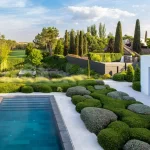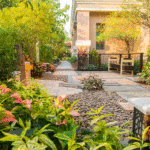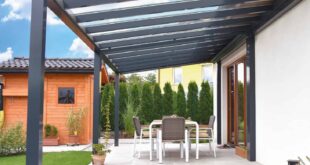Contemporary gardens are a modern take on traditional gardening practices, blending innovative designs with sustainable principles. These gardens are characterized by their clean lines, minimalistic features, and use of cutting-edge materials. Instead of focusing on elaborate flower arrangements or ornate sculptures, contemporary gardens often highlight the beauty of natural elements like native plants, water features, and organic materials.
One of the key principles of contemporary gardens is the idea of sustainability. Gardeners strive to create landscapes that are not only visually appealing but also environmentally friendly. This includes using drought-tolerant plants, installing efficient irrigation systems, and incorporating composting and recycling practices. By embracing sustainable gardening techniques, contemporary gardens help reduce their environmental impact and contribute to a healthier ecosystem.
Another feature of contemporary gardens is their integration of technology. From automated irrigation systems to smart lighting controls, technology plays a significant role in maintaining and enhancing the beauty of these gardens. Gardeners can remotely monitor and adjust the conditions in their gardens, ensuring that plants receive the right amount of water and light to thrive. Technology also allows for the incorporation of innovative design elements, such as solar-powered features or digital displays.
Contemporary gardens often feature a mix of hardscaping and softscaping elements. Hardscaping involves the use of nonliving elements like stones, pavers, and concrete to create pathways, seating areas, and other structural features. Softscaping, on the other hand, refers to the use of living elements such as plants, grasses, and trees. By combining these two elements in a harmonious way, contemporary gardens create a balanced and cohesive landscape that is both functional and visually appealing.
In addition to their sustainable practices and advanced technology, contemporary gardens also prioritize usability and accessibility. Designers carefully consider the needs and preferences of the garden’s users, whether it be for relaxation, entertainment, or exercise. Elements like designated seating areas, outdoor kitchens, and play spaces for children enhance the functionality of contemporary gardens, making them versatile and enjoyable for a range of activities.
Overall, contemporary gardens represent a fresh and innovative approach to outdoor design. By combining sleek aesthetics with sustainable practices and user-friendly features, these gardens offer a modern and environmentally conscious alternative to traditional landscaping. Whether you’re looking to create a tranquil retreat or a vibrant entertainment space, contemporary gardens provide endless possibilities for creating a landscape that complements your lifestyle and values.
















